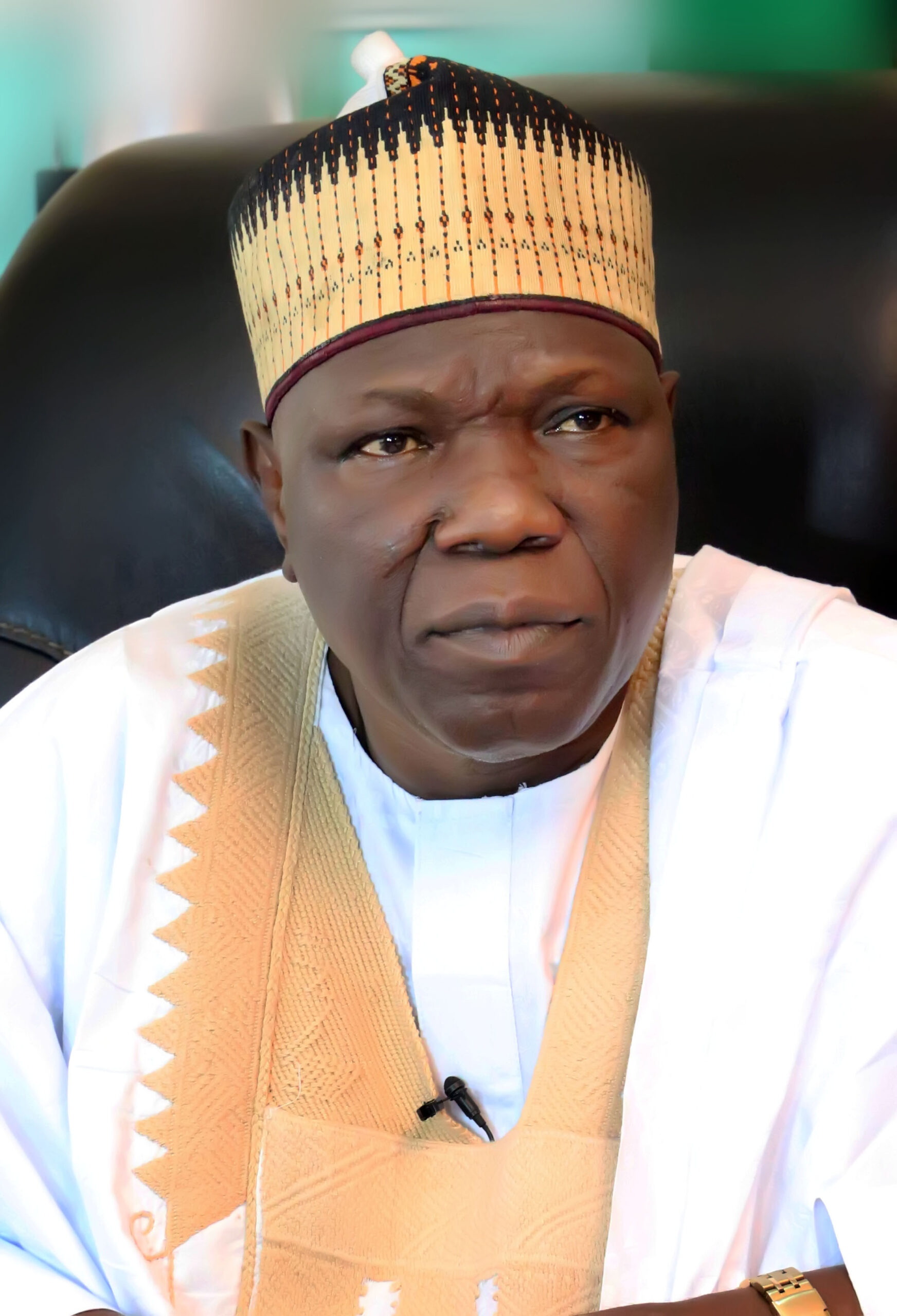Business
Despite Emefiele’s claim of N1tn in circulation, Nigerians continue experiencing scarcity

DESPITE a claim by Central Bank of Nigeria (CBN) Governor Godwin Emefiele that the apex bank has pushed nearly N1 trillion into circulation, Nigerians continue experience scarcity.
Many branches of the Deposit Money Banks (DMBs) complain of inadequate allocation of cash from the CBN on daily basis.
Speaking on cash flow since the March 3 Supreme Court judgment, Emefiele said: The CBN will need to re-access again to know whether the currency in circulation has attained an optimal level so as to be able to put in place measures that will ensure that we don’t go back to what we had before, where people were keeping a lot of money outside the banking system for their own benefit.
“The MPC has noted that the naira redesign and cash withdrawal limit policies have resulted in a sizeable reduction in Currency-Outside-Banks, indicating an expected improvement in the potency of monetary policy tools.”
He said the “online payment on the Intech sector has actually improved quite a lot and we are happy that rather than relying on just only the banks, we have many other channels through which online payment services can be done so that Nigerians don’t suffer because we are in insisting that we have to go cashless.”
He apologised to Nigerians for the pains they go through while trying to carry out electronic transactions across several bank channels.
But notwithstanding Emefiele’s claim that more cash had been pumped into circulation, businesses, consumers and banks customers have demanded immediate end to the ongoing naira scarcity.
As far as they are concerned, the impact of the cash injected by the CBN is yet to be felt in the banking system.
According to small business operators, the cash crunch has limited their transaction volume and ability to meet the financial needs both to their customers and families.
Mary Okon, a Lagos-based entrepreneur said the cash crunch has reduced her volume of sales.
READ ALSO:
- Dentist accused of poisoning wife’s drink to be with mistress
- Nigeria’s democracy has truly matured but am unhappy some candidates lost the election – Buhari
- US to punish Nigerians responsible for election violence in Lagos, other states
She said: “Before now, I made at least N35, 000 daily sales. Today, recording N10, 000 daily sales has become a big challenge. I plead with the CBN to release more cash to the economy.”
Although banks continued the payment of both old and new naira notes to customers, the volume of the notes in circulation has not met the demand for cash.
Many banks within the Lagos metropolis did not dispense cash to their customers either over the counter (OTC) or through the Automated Teller Machines (ATMs).
“There were long queues of bank customers at most ATM points that had some cash to dispense. One bank branch in Marina Lagos, could only dispense N10,000 to customers with the bank’s ATM card. Customers of other banks got N5,000,” a customer narrated.
In Abeokuta, the Ogun State capital, agonies of residents arising from the persisting cash crunch worsened yesterday.
Banks in the Gateway City ran out of cash – both the new and old naira notes of 200, 500 and 1,000 denominations.
At Omida, Lalulu Street (Okelewo), Panseke, Jide Jones, Sapon, Ita – Eko, Kuto and the Old Secretariat area, investigation showed that they only opened to their surging customers to lodge complaints over truncated transactions and debit issues that occurred since the redesigned new naira notes policy took effect.
Those who came for cash withdrawals returned home with disappointments. There were neither OTC payments, nor from the ATMs.
The few ATM points that were dispensing cash stopped at 11am. A security guard in one of the banks cited mechanical faults and cash shortage as reasons.
Business
Breaking: Nigeria’s inflation rises to 33.2%, says NBS

Breaking: Nigeria’s inflation rises to 33.2%, says NBS
The National Bureau of Statistics (NBS) says the nation’s inflation rate rose to 33.2 per cent for the month of March 2024.
This represents a 1.5 per cent increase over 32.7 per cent recorded in February 2024.
The NBS disclosed this in a new report released on Monday.
It explained that the rise was primarily due to higher costs of food, beverages, energy, and housing. Compared to February 2024, the inflation rate in March increased at a slower pace, with food inflation reaching 40.01% year-on-year.
NBS attributed the spike in food prices to the rising costs of items like garri, millet, yam tubers, and others. On a month-on-month basis, food inflation slightly decreased to 3.62% in March 2024.
Urban inflation also increased to 35.18% year-on-year in March 2024, while rural inflation stood at 31.45%.
Core inflation, which excludes volatile agricultural products and energy, was 25.90% year-on-year in March 2024.
Overall, the rising cost of living in Nigeria is evident in the significant increase in inflation rates across different categories.
It is crucial for policymakers to address these challenges to alleviate the financial burden on the population.
Business
Nigeria’s oil production drops by 2.8 million barrels in one month

Nigeria’s oil production drops by 2.8 million barrels in one month
The Nigeria Upstream Petroleum Regulatory Commission (NUPRC) has confirmed the data released by the Organisation of Petroleum Exporting Countries (OPEC), indicating a consecutive decline in Nigeria’s oil production for the second month in a row.
According to NUPRC reports, crude drilling operations in March saw a notable decrease, with production dropping from 1.42 million barrels per day (bpd) in January to 1.23 million bpd in March, marking a significant loss of approximately 2.8 million barrels over the month.
Minister of State for Petroleum Resources (Oil), Senator Heineken Lokpobiri, acknowledged the declining trend, attributing it to issues on the Trans Niger Pipeline (TNP) and maintenance activities by oil companies in Nigeria during the period.
READ ALSO:
- Army kills terrorists invading Kaduna with arms, ammunition
- El-Rufai’s Ally, Aisha, arrested over Facebook post against Gov Sani
- FG begs workers as electricity union insists on strike over tariff hike
However, beyond crude oil, condensate production, which typically falls outside OPEC’s quota calculation, also experienced a decline in March, further exacerbating Nigeria’s overall production slump.
Auto
Ore extols ex-NURTW President Yasin’s virtues at 68

Ore extols ex-NURTW President Yasin’s virtues at 68
Acting President of the National Union of Road Transport Workers (NURTW), Alhaji Aliyu Issa Ore, has described the former president of the union, Alhaji Najeem Usman Yasin, as a trade unionist per excellence with worthy administrative experience.
He stated this in his goodwill message on the 68th birthday of Alhaji Yasin
Ore, a former chairman of the Kwara State council of the union, said the achievements he recorded while in Kwara were as a result of quality advice and guidance from Yasin.
Ore explained that Yasin’s tenure as president of the union witnessed tremendous development and growth of the NURTW.
“His tenure as president of the union recorded first-class growth.
“He took the union to the global stage. For the first time, our union became a strong member of International Transport Federation (ITF).
“Apart from getting international recognition, he also built zonal council offices for all the zones. Before he came in, our zonal councils usually operated from rented apartment but his administration acquired land and built befitting zonal offices for all our zonal councils.
“Again, Alhaji Yasin ensured that the national headquarters of the union assisted many state councils to build their own councils secretariat. Through his guidance, most state councils now operate from their own state councils.”
He recalled the peace enjoyed by members of the union under Yasin, saying this ensured that the body had perfect transition arrangements devoid of thuggery and shedding of blood.
“Before he came into office, our election or change of leadership was usually bloody. But he put a system in place that put an end to thuggery and other violence in the union,” he said.
Ore also said Yasin’s tenure boosted the education of members and workers by ensuring that the union secured partnership with National Open University of Nigeria (NOUN) which enabled members to acquire university education.
“Members of staff also enjoyed opportunities to go for training and workshops to boost their knowledge,” Ore stated.
He prayed that Almighty Allah would continue to preserve him to witness more years in good health.

-

 metro6 days ago
metro6 days agoTribute: C.K George, Epitome of Courage, by Kunle Awobodu
-

 metro5 days ago
metro5 days agoTroops arrest ISWAP commander involved in Army General, 3 soldiers’ killing in Borno
-

 metro6 days ago
metro6 days agoBandit kingpin, Dangote, siblings killed in Katsina
-

 News6 days ago
News6 days agoBetta Edu threatens to sue BBC, alleges defamation
-

 News6 days ago
News6 days agoI never said Aiyedatiwa is Tinubu’s preferred candidate in Ondo – Interior Minister
-

 metro5 days ago
metro5 days agoJUST IN: Actor Junior Pope resuscitated after death scare
-

 News5 days ago
News5 days agoBREAKING: Ex-Abia gov, Ogbonnaya Onu, is dead
-

 metro6 days ago
metro6 days agoPolice arrest female kidnapper in Ebonyi, rescue six abducted children






















